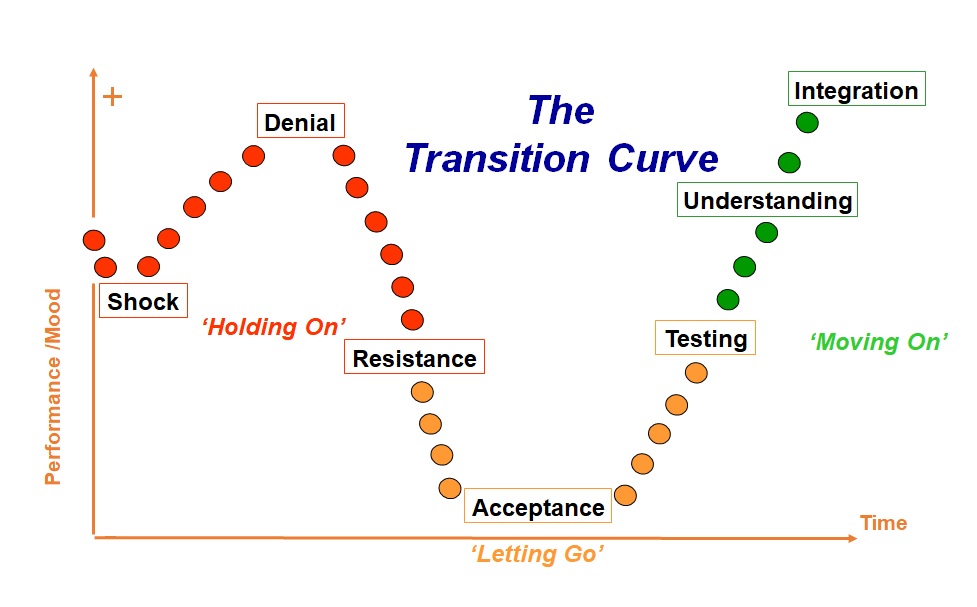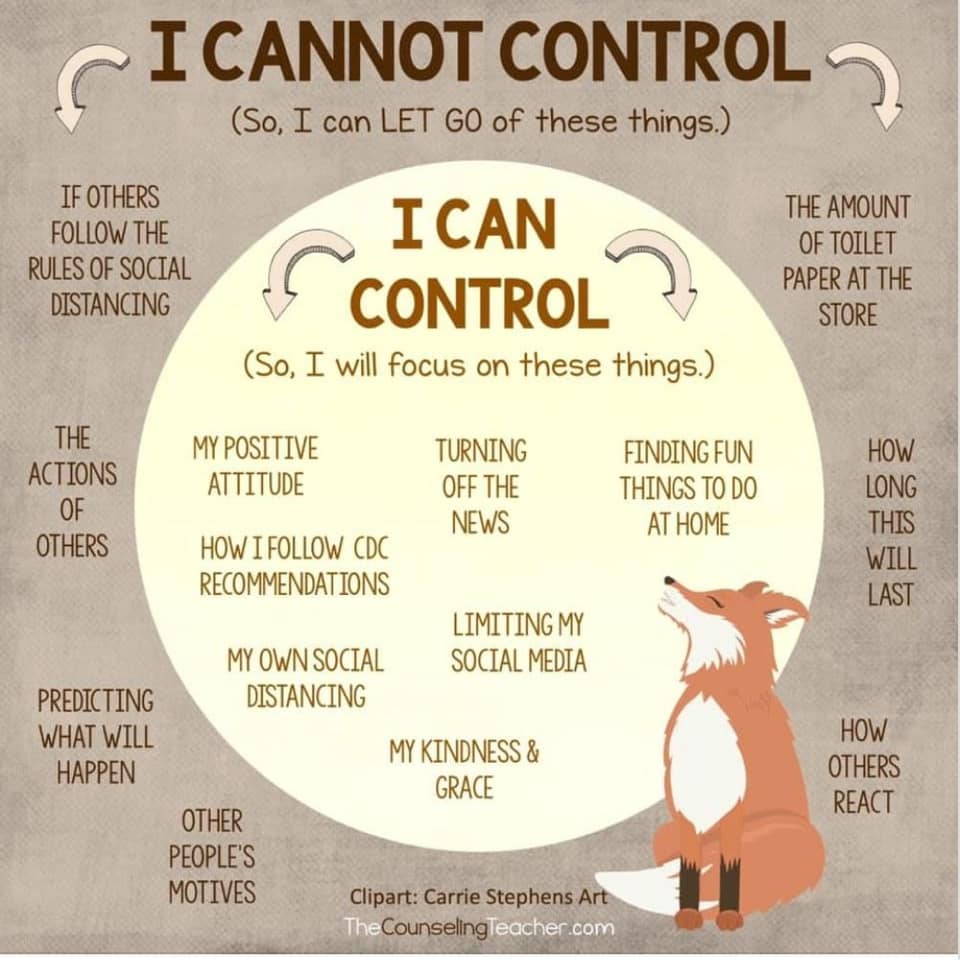
Understanding how we feel and finding ways to cope
I’ve been talking to people over the last few days about how to begin to make sense of what is happening around us. People’s feelings are understandably confused and heightened; anger, sadness, frustration, anxiety. The world is forever changed already and we don’t yet know the extent of that change and the long term impact it will have. Dealing with this uncertainty is what will help us work our way through this unprecedented change emotionally and mentally. In one of the coaching conversations I had this week, we talked about the change curve based on the work of Elisabeth Kubler-Ross around grief (you can find more information about that here) and how understanding that what we are experiencing personally is a ‘normal’ pattern of responses of such times can really help us.

I came across an article in the Harvard Business Review which I thought would be useful to share here. I’ve summarised it as best I can. It’s based on the work of David Kessler, a world expert on grief who worked with Elisabeth Kubler-Ross to explain the stages of grief.
Kessler identifies what we can do to start to manage the emotions and reactions we are experiencing right now.
Understand the stages of grief
These he describes as:
- Denial – it won’t happen; the virus won’t affect us greatly
- Anger – You’re limiting my freedom of movement; I can’t work and support my family and I feel angry about that
- Bargaining – If I social distance now, everything will be better, won’t it?
- Sadness – I don’t know when this well end
- Acceptance – this is happening and I have to find a way to carry on.
- Meaning (an element added by Kessler) – acknowledging that we still have connections with people virtually, appreciating what we do have
It’s important to say that we are likely to move through the stages at different rates to each other and may move on, then back and so on depending on our circumstances. That’s normal too. Just to know that what we’re experiencing is human can be a comfort in itself.

Find balance in the things you’re thinking
Notice not only the things which are causing you anxiety right now but also the things you are grateful for. I know many of you are working tirelessly and in horrendously difficult circumstances right now and it’s understandable that this might be difficult. Keep trying – you will find something.
Be present
Anxiety comes from worry about what is to come and looking back to what has happened in the past. Being present, whether through mindfulness, yoga, knitting or colouring will help us come into the present. There are some ideas here.
Control what’s controllable
In acceptance, says Kessler, we can find control – we can wash our hands, work virtually, stay at home. I’ve included above a useful representation of this for our times which has been circulating on social media. It’s based on Stephen Covey’s work.
Practice compassion
Take time to understand that people may be behaving differently while under huge amounts of stress. Where you can, respond with compassion not only towards them but towards yourself. Be kind where you can, even at a distance.
Acknowledge the emotion
Kessler talks about how as a generation, we have become familiar with being able to ‘feel things about our feelings’. An example of this might be ‘I feel sad but I shouldn’t feel sad because other people have got it worse than me’. He explains that fighting the feeling doesn’t help because we are feeling the feeling. Acknowledge it, name it, allow it –this empowers us and enables us. Let yourself grieve, he says, then we can move through.
If you would like a listening ear right now, I would love to be useful. If you would like to connect, please get in touch. www.clairembradshaw.co.uk

